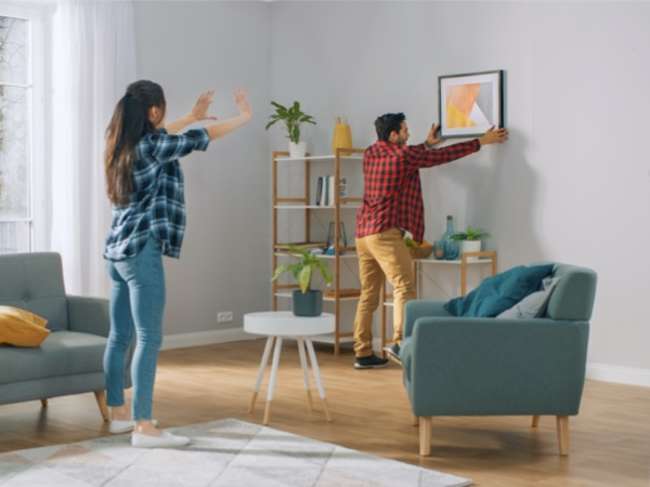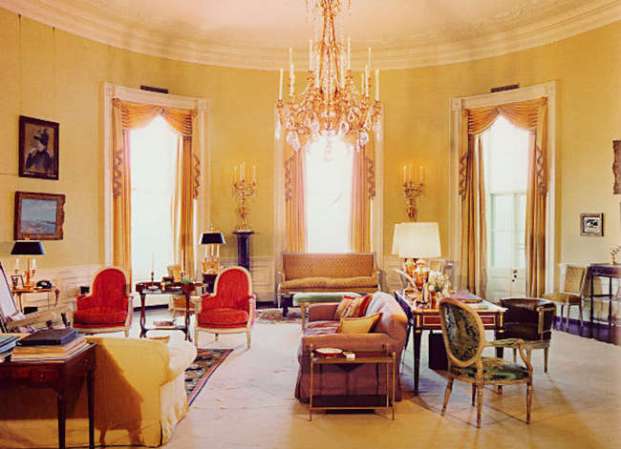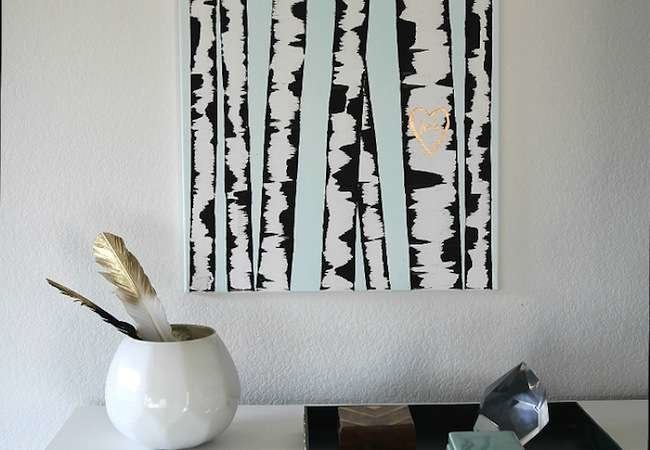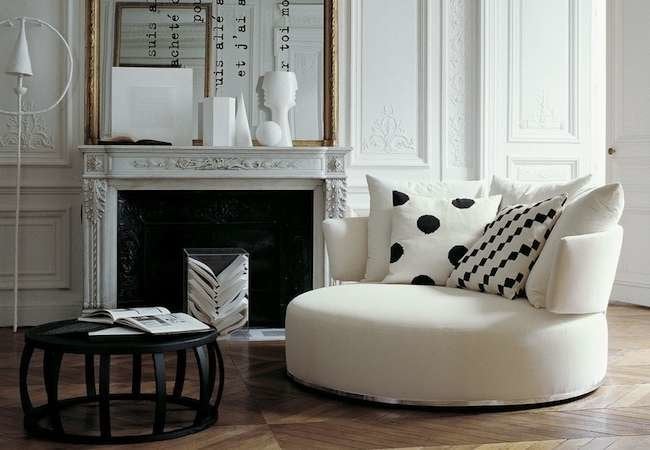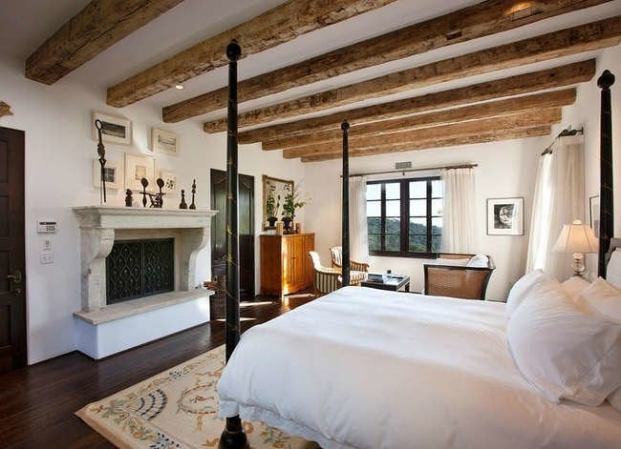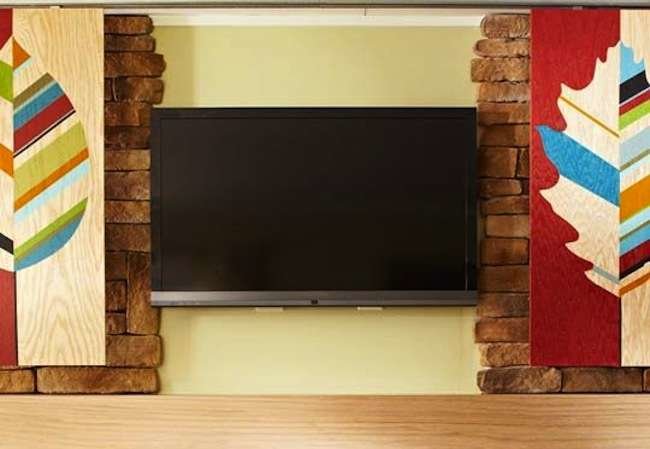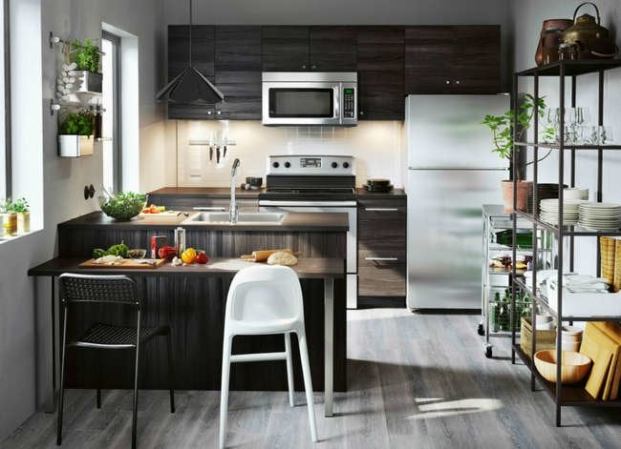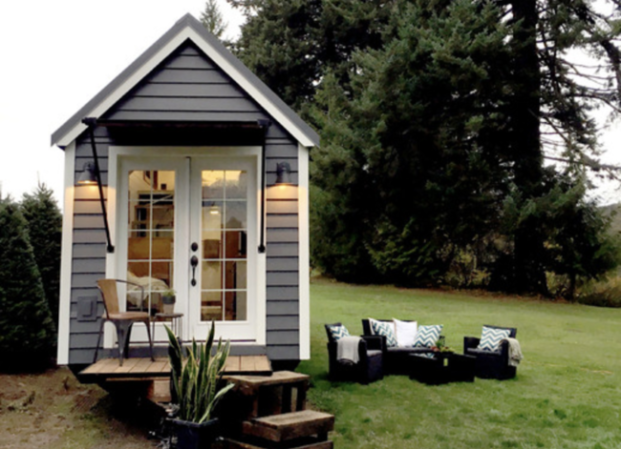We may earn revenue from the products available on this page and participate in affiliate programs. Learn More ›
Design Debacles
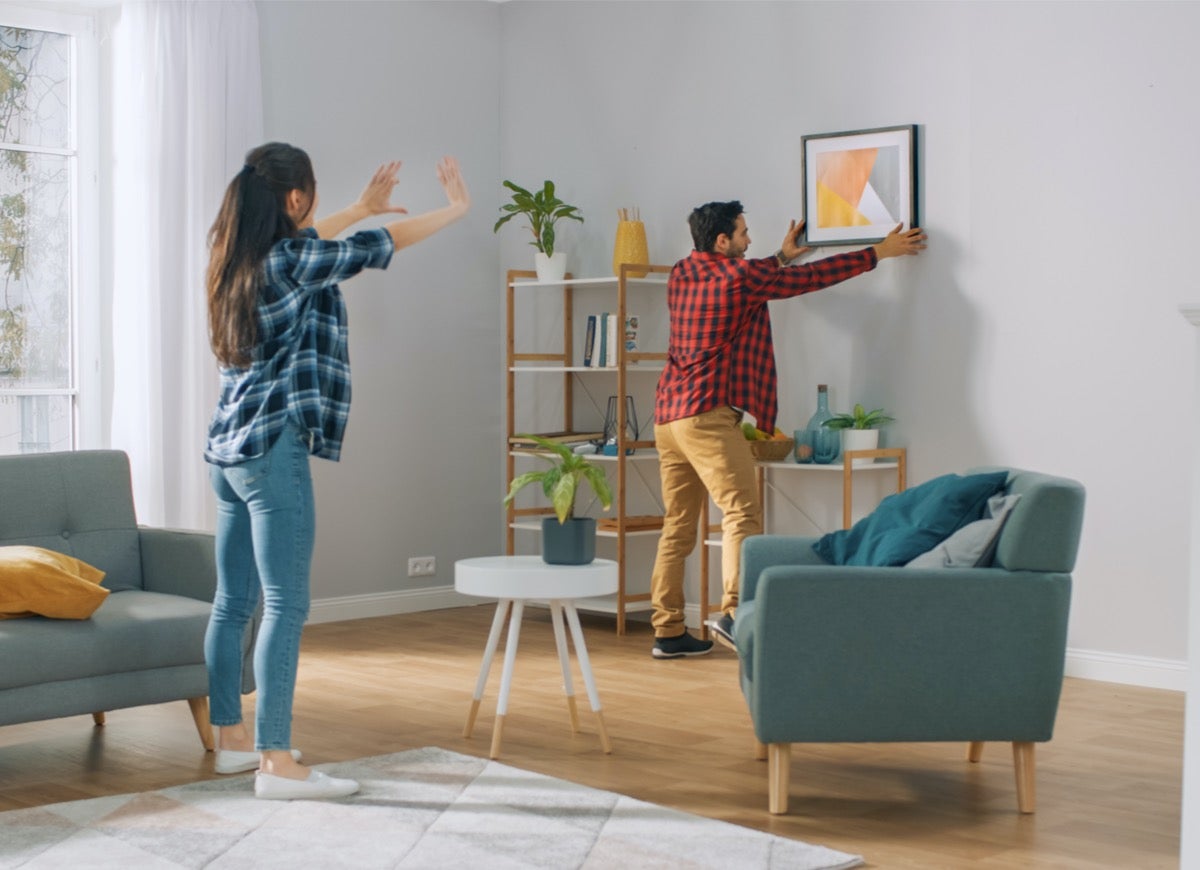
When figuring out what colors to paint a room, what flooring to choose, and how to arrange the furniture, homeowners often try to recreate a look they’ve seen elsewhere—in a catalog or online. When the finished design doesn’t evoke the same feeling, they wonder why. Oftentimes, the problem is a simple error that can be easily corrected—read on to learn how to fix some of the most common interior design mistakes.
Get the Rug Right
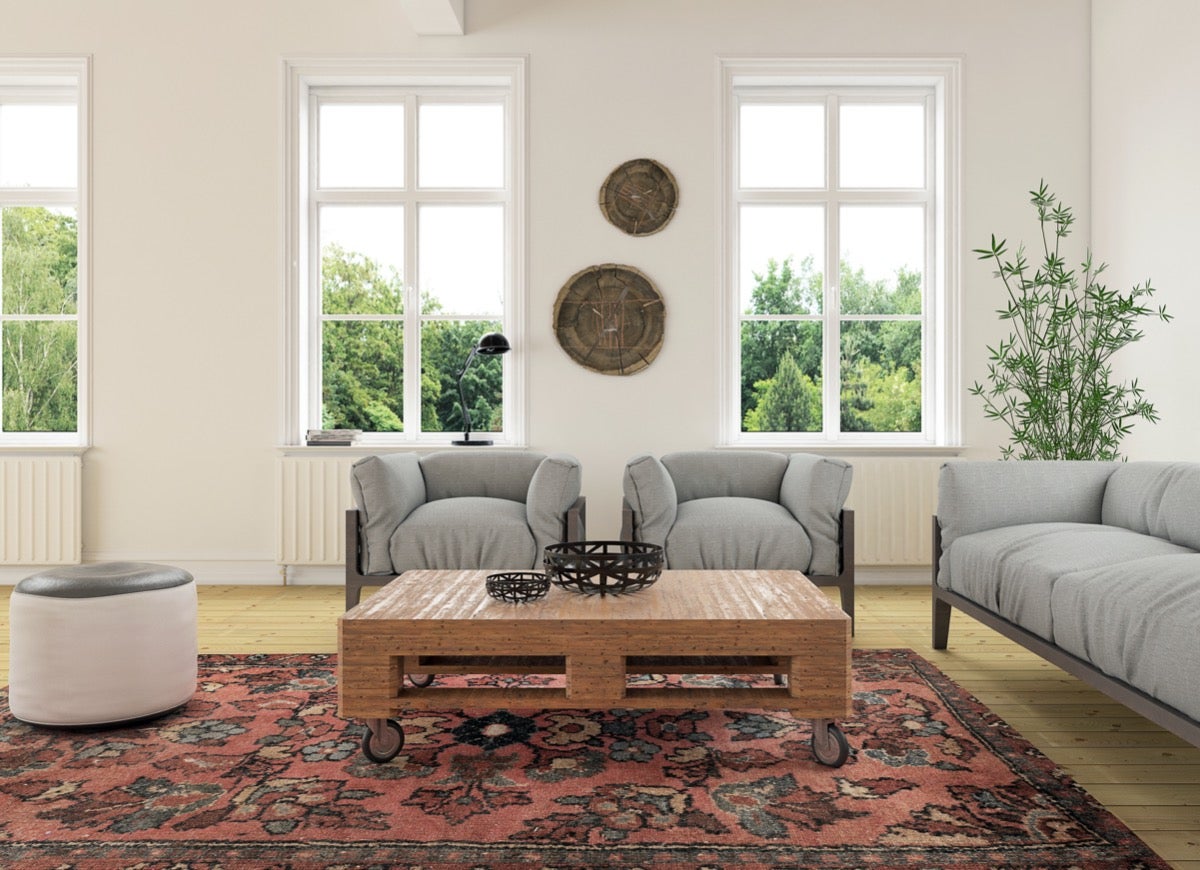
Rugs define and separate living areas, so the rug in a family room or a living room should be large enough for the front legs of the chairs and sofa to rest on the rug. This means most living rooms will need a rug that’s at least 8-feet-by-10-feet in size, or larger. Using an undersized or skimpy rug will make the space feel uncomfortable and barren.
Ditch the Dark Lampshades
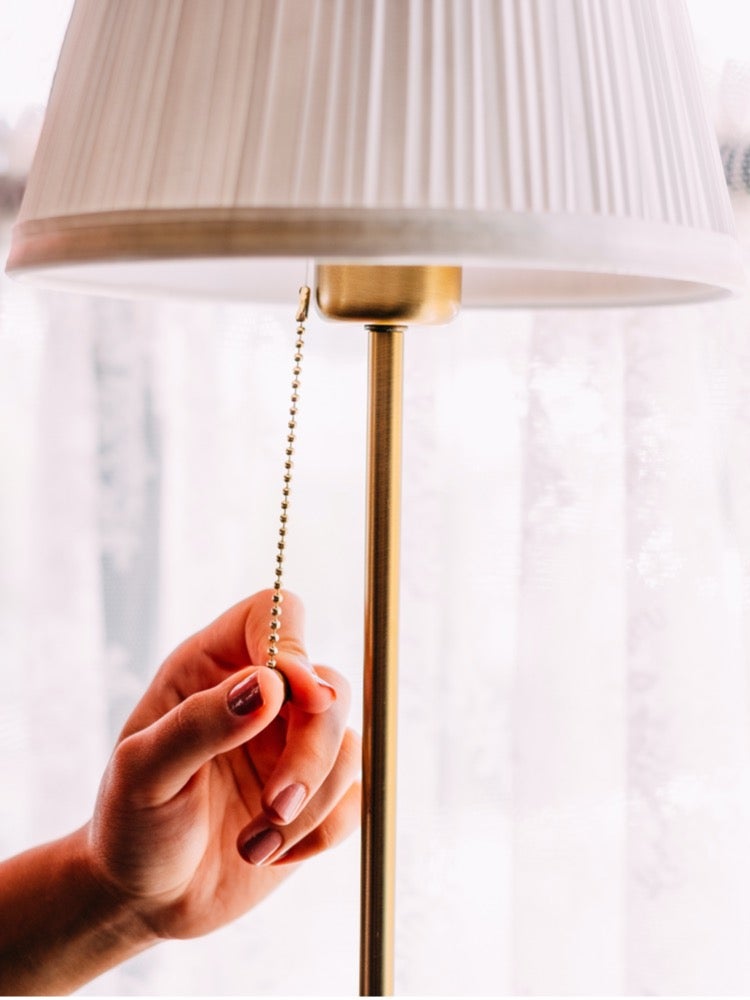
Dark lampshades cast harsh shadows on walls and give rooms a dreary feel. Plus, they’re magnets for dust. If you have dark lampshades, consider switching them out for light-colored ones that match the lighter colors in your décor. For example, you could choose new shades in lemon yellow if your upholstery features blue and lemon yellow stripes.
Nix Family Photos

A single wedding or family photo strategically placed on a dresser is fine, but creating gallery walls of family photos is poor design strategy. Removing family photos is especially important if you plan on putting your house on the market because rather than making a room look chic, they just make it look cluttered. Your treasured photos can still be enjoyed if stored safely in a photo album.
Related: These Are the Design Trends Realtors Recommend Skipping
Diversify Fabric Design
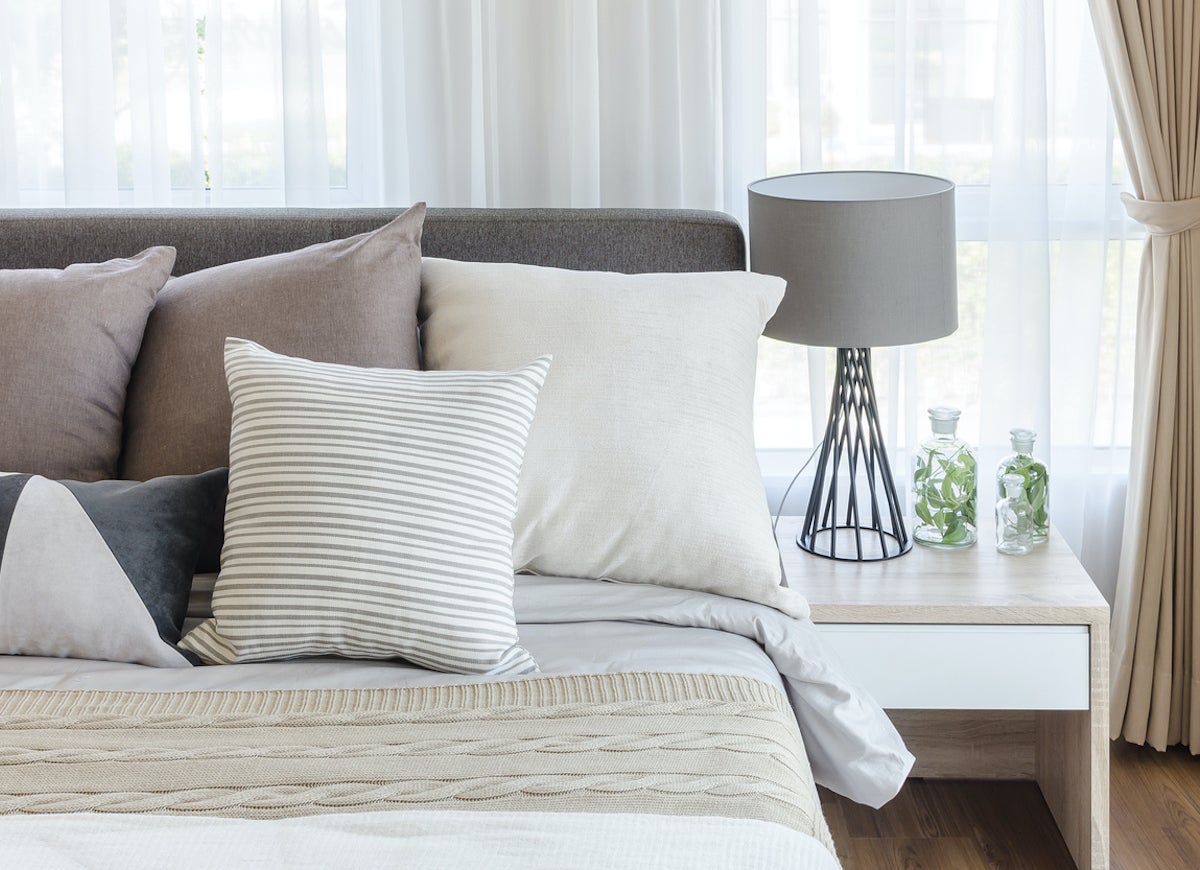
The 1970s were all about using identical fabric on curtains, sofas, chairs, and pillows, but that sort of design overkill can be visually overwhelming. A better option is to choose a fabric design you really like and use it for just one item, either the curtains, the upholstered furniture, or even a bed comforter to create a focal point in the room. Then, for the other fabric items, select colors and designs that complement the focal point but don’t distract from it.
Can the Collection

Collecting items can be fun, and while a set of three ceramic roosters on a counter can add color and whimsy to a kitchen, 30 ceramic roosters crowded on every available shelf and surface will make the room feel disorderly. Consider selling or donating collections that have grown in size over the years to give your rooms a clean spacious look and feel.
Forget Fads
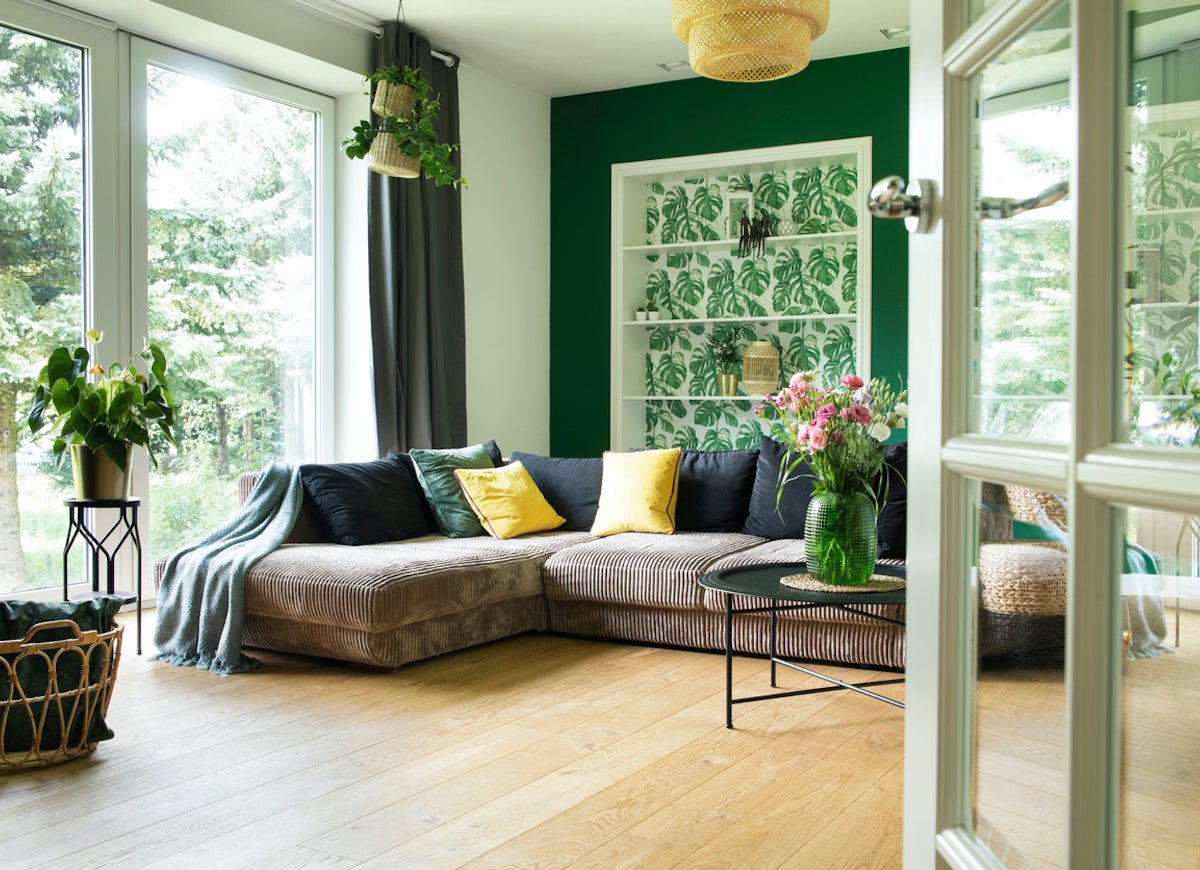
Trendy design choices often don’t stand the test of time. Remember avocado-colored toilets and copper-colored appliances? When it comes to decorating and furnishing your home, go ahead and have some fun, but avoid popular fads, such as bold-colored carpeting or high-contrast accent walls that can quickly make a room look dated.
Lift Your Defenses
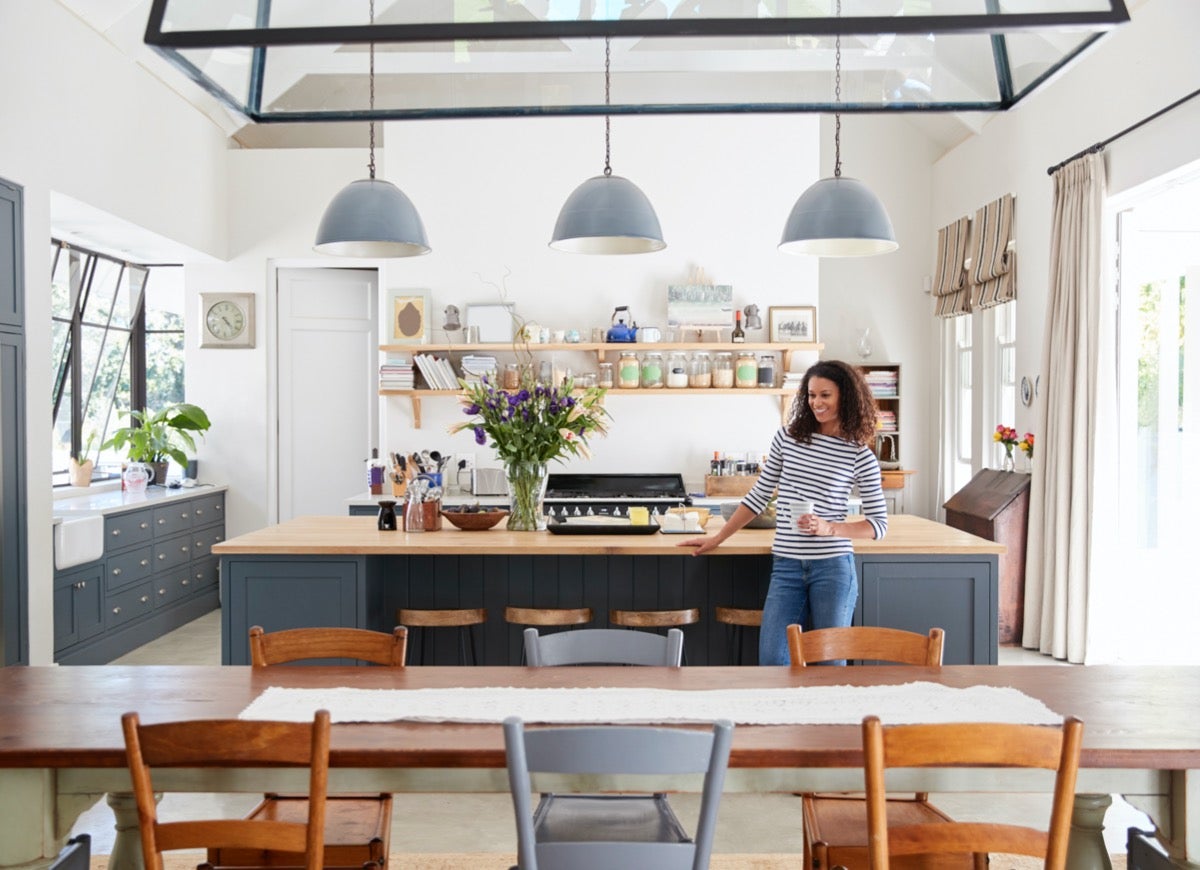
Covering furniture and other items to protect them from scratches and stains might prolong their useful life, but it can make rooms feel heavy and dreary. Oversized tablecloths, runners on dressers and sideboards, quilted covers on appliances, and plastic upholstery covers do nothing to boost your home’s design appeal. Instead, treat upholstery with a fabric protectant such as Scotchguard, use placemats on the dining table only when you eat, and stash the toaster in a cabinet if you don’t want it to be seen.
Curtain Call
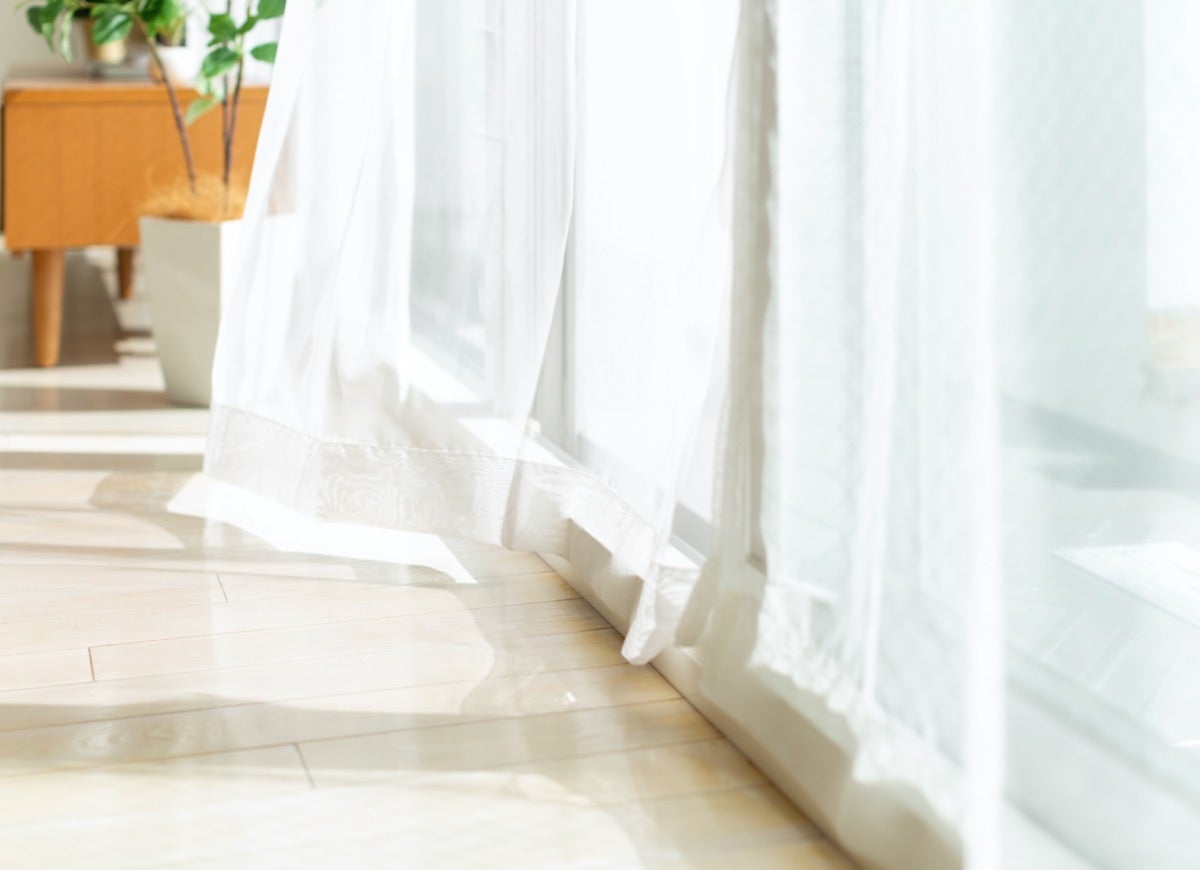
Long curtains that puddle on the floor can add a voluminous feeling to a large room, but too-long draperies are not vacuum-friendly, and they tend to gather dust from the floor. A better option for most homeowners is to hang curtains so the bottom hem is about 1/2-inch above the flooring. The curtains will stay cleaner, look sharper, and you’ll be less likely to step on the fabric and tear the curtains off their rods.
Balance the Bedroom
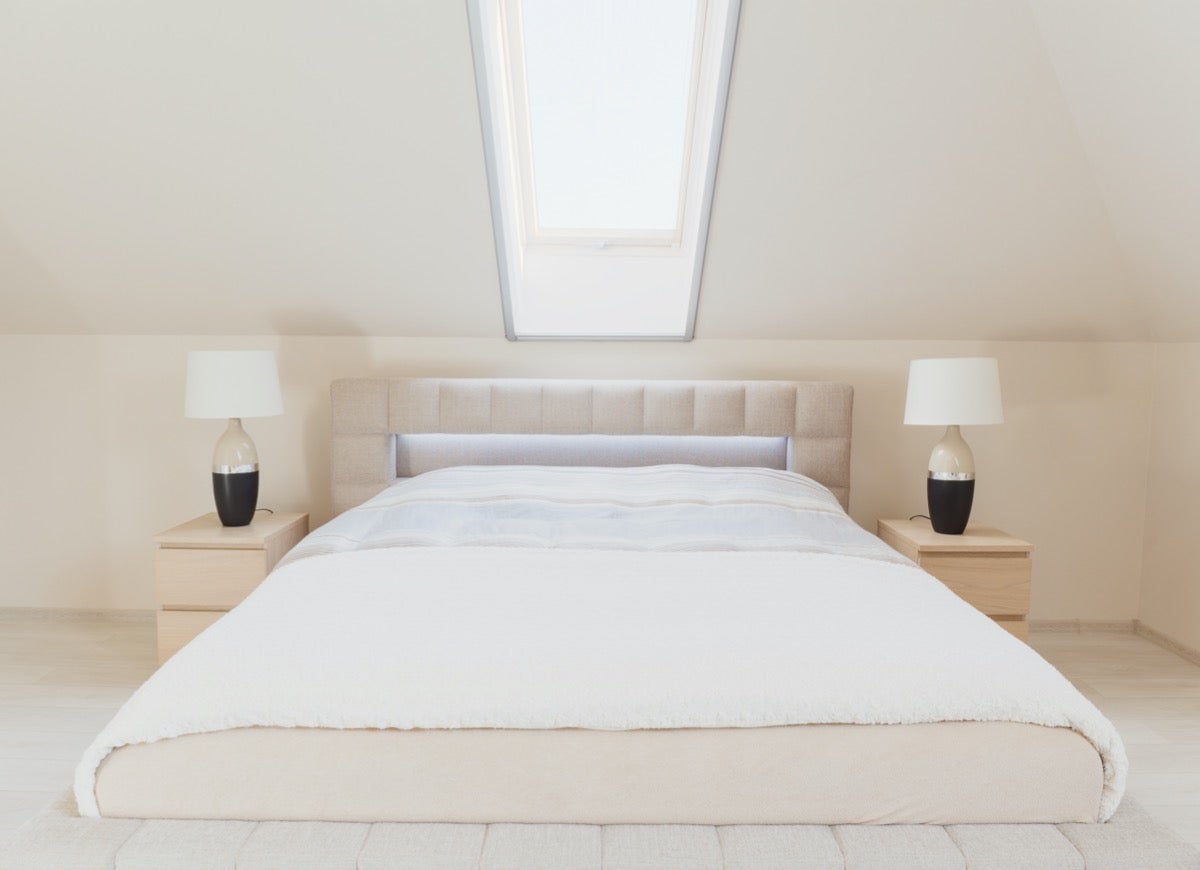
If you’re looking to purchase a complete set of bedroom furniture, you’ll probably receive a bed, a nightstand, and one or two dressers. Having a nightstand on just one side of a bed, however, can make a bedroom look lopsided and uncomfortable. When buying bedroom furniture, purchase an extra matching nightstand and put one on each side of the bed.
Fit the Furniture to the Space

Crowding a large sofa and overstuffed recliners into an apartment-size living room will leave the space feeling cramped and confined. Before shopping for furniture, make a to-scale floor plan of the room and sketch in furniture arrangements until you find a pleasing configuration, making note of how different sized pieces affect the design.

